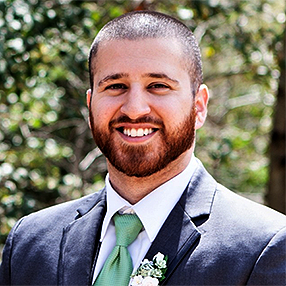
Aldevron Breakthrough Blog
Quick T-Cell Education
February 8, 2023 / by Patrick Paez, Ph.D.
A new means to fight stem cell transplant infections
When attending a large event such as Advanced Therapies Week, you are able to reach outside your regular workspace and learn about numerous developments happening in other spaces. One in particular that I learned of is an exciting advance in a new ex vivo cell therapy from Smart Immune. It's designed to help those who receive allogenic bone marrow transplants as part of treatment for cancer, such as leukemia, lymphoma, or myeloma, which can leave a patient in an immunosuppressive state.
Allogenic bone marrow transplants come from donors whose genetics are similar in resemblance, but not a perfect or exact match for a patient. For those patients, an allogeneic transplant is often their only recourse for treatment. The risks are relatively high with this procedure, with a mortality rate of around 30% or more, depending on individual circumstances.
This procedure is dangerous because the first step is the removal of the patient’s bone marrow leaving the patient in an immunosuppressed and in a fragile state given that the bone marrow produces white blood cells, red blood cells and platelets. This immunosuppressive state is necessary so a patient’s immune system does not reject the initial bone marrow transplant.
After the bone marrow transplant, patients have to mitigate rejection of the transplant attacking their body and vital organs (graft-versus-host disease, or GVHD) for the rest of their lives. These issues are the driving force behind Smart Immune’s ProTcellTM therapy technology.
100 days to educated T-cells
Smart Immune dosed their first patient in December 2022 with the ProTcell therapy technology at Memorial Sloan Kettering Cancer Center (NCT04959903). This therapy is the first of its class designed to provide allogeneic stem cell transplant patients with tolerant, educated, and functional T-cells originating from their graft in 100 days instead of 12-18 months.
The success of this intervention would mean patients would have significant protection from their immune system within 100 days as compared to the typical 12-18 month time frame. This would reduce the potential for opportunistic infections from the typical immunosuppressive state these patients experience, and the rapid addition of immune cells that are tolerized to the patient's body, reducing the chances of GVHD.
This is achieved by an ex vivo process in which the donor hematopoietic stem cells are cultured into the ProT-cell stage (ProTcells: CD7+, CD5-; produced within seven days) and infused into the patient at the time of bone marrow transplantation, where they rapidly migrate to the thymus, and undergo the bodies tolerance and education process in about three months.
This novel method should improve the safety of hematopoietic stem cell transplantation by providing patients with a diverse and tolerant T-cell repertoire to fight relapse and deadly opportunistic infections caused by the immunosuppressed state experienced during the transplant.
